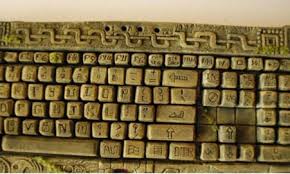Millennia-Old Machines: Ancient Computers That Defy History

What if humanity’s technological mastery stretches far beyond what textbooks tell us? In a series of astonishing discoveries, archaeologists have unearthed artifacts that suggest ancient civilizations may have created sophisticated computational devices thousands of years ago. These revelations challenge our understanding of history and force us to reconsider the capabilities of our ancestors.

Among the most captivating finds is the Antikythera mechanism, a complex assembly of intricately designed gears and precise dials believed to date back to the second century BCE. This ancient artifact, often referred to as the world’s first analog computer, reveals a level of mechanical sophistication that was previously thought to be unattainable for its time. Its celestial alignments indicate that it was likely used to track the stars, predict eclipses, and calculate cycles of time with remarkable accuracy. Such capabilities suggest that ancient civilizations possessed a deep understanding of astronomy and mathematics long before the dawn of the Scientific Revolution.
Each fragment uncovered from archaeological sites whispers secrets of forgotten knowledge, hinting at technologies that may have been lost to the sands of time. The notion that ancient cultures were capable of creating machines that could perform complex calculations and observations opens up a tantalizing realm of possibilities. Were these “ancient computers” part of a broader technological framework that has since been erased from history?

As experts painstakingly reconstruct these enigmatic machines, the boundaries between myth, science, and human ingenuity begin to blur. The implications are profound: if our ancestors harnessed such advanced technology, what other elements of their civilization might we have overlooked? The artifacts challenge the conventional narrative of human progress, suggesting that technological advancements may not be a linear journey but rather a complex tapestry woven through time.
The idea that ancient peoples were far more advanced than we ever dared to imagine invites us to explore the depths of human creativity and innovation. It raises questions about the knowledge that civilizations may have possessed and subsequently lost due to cataclysmic events or societal changes.

As researchers continue to investigate these artifacts, we are reminded that history is not merely a record of the past but an evolving narrative that can shift with each new discovery. The story of humanity’s technological journey is far richer and more intricate than we have been led to believe. With every revelation, we inch closer to understanding the brilliance of our ancestors and the mysteries that still lie beneath the surface of our shared history.











